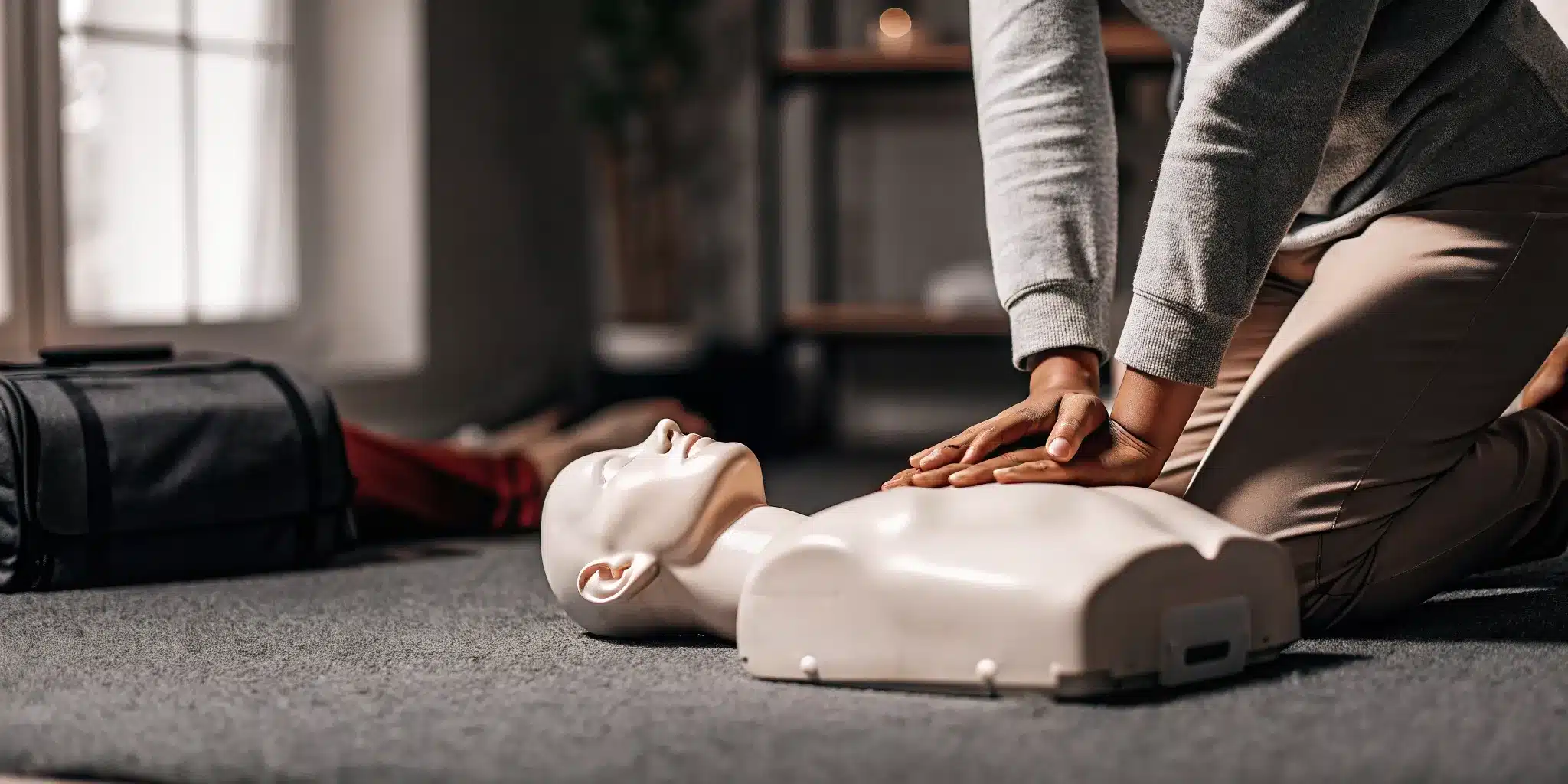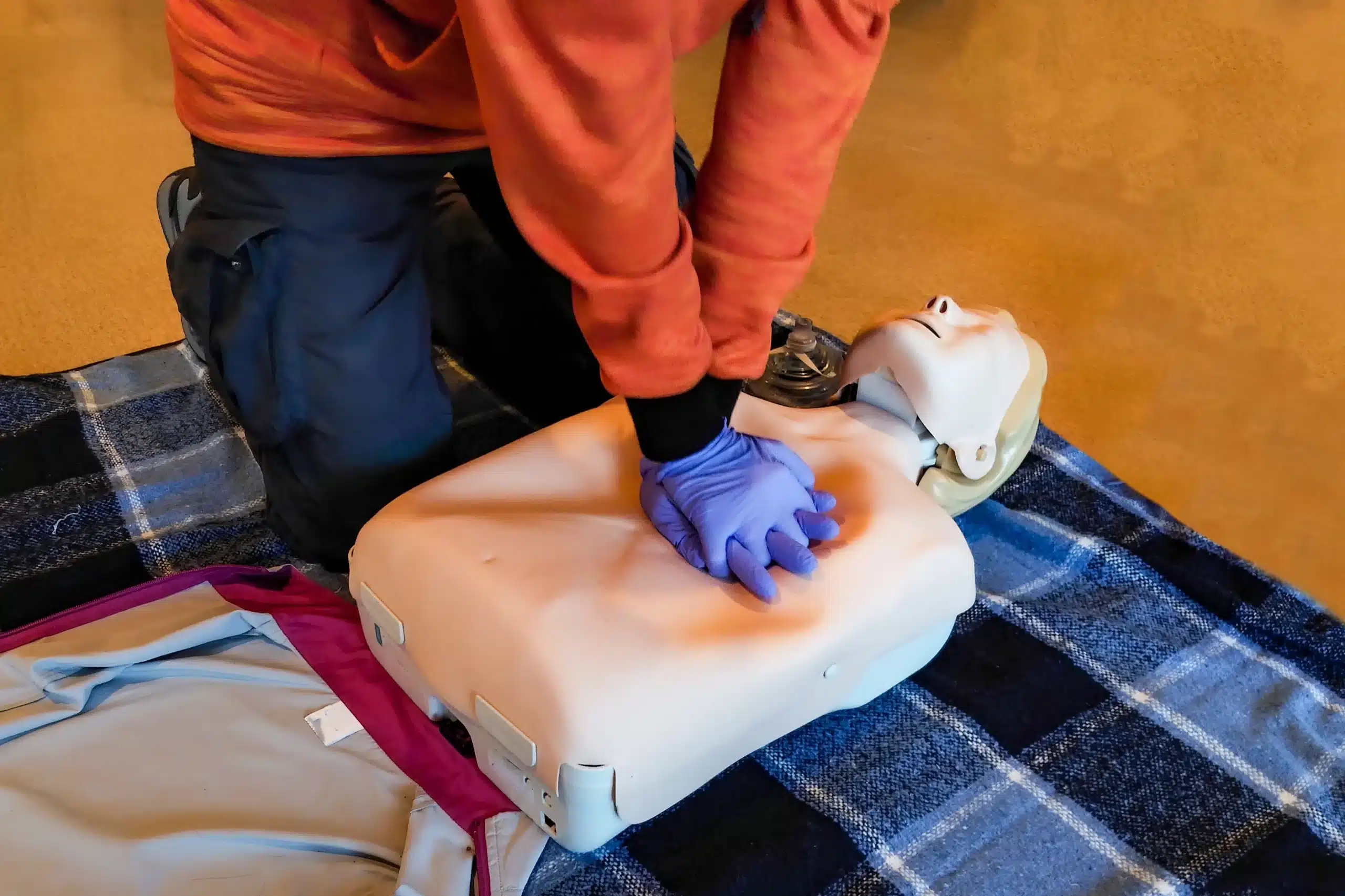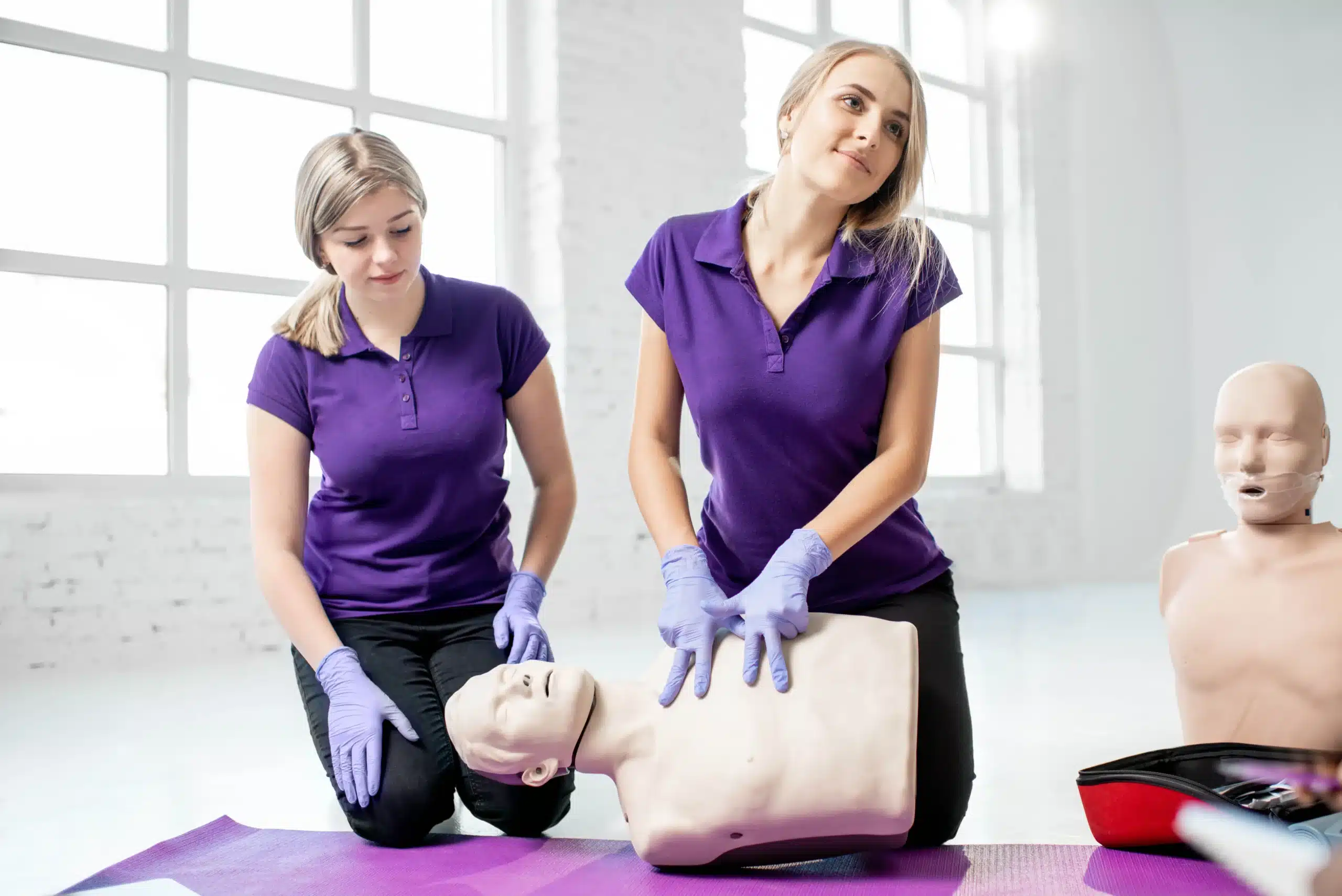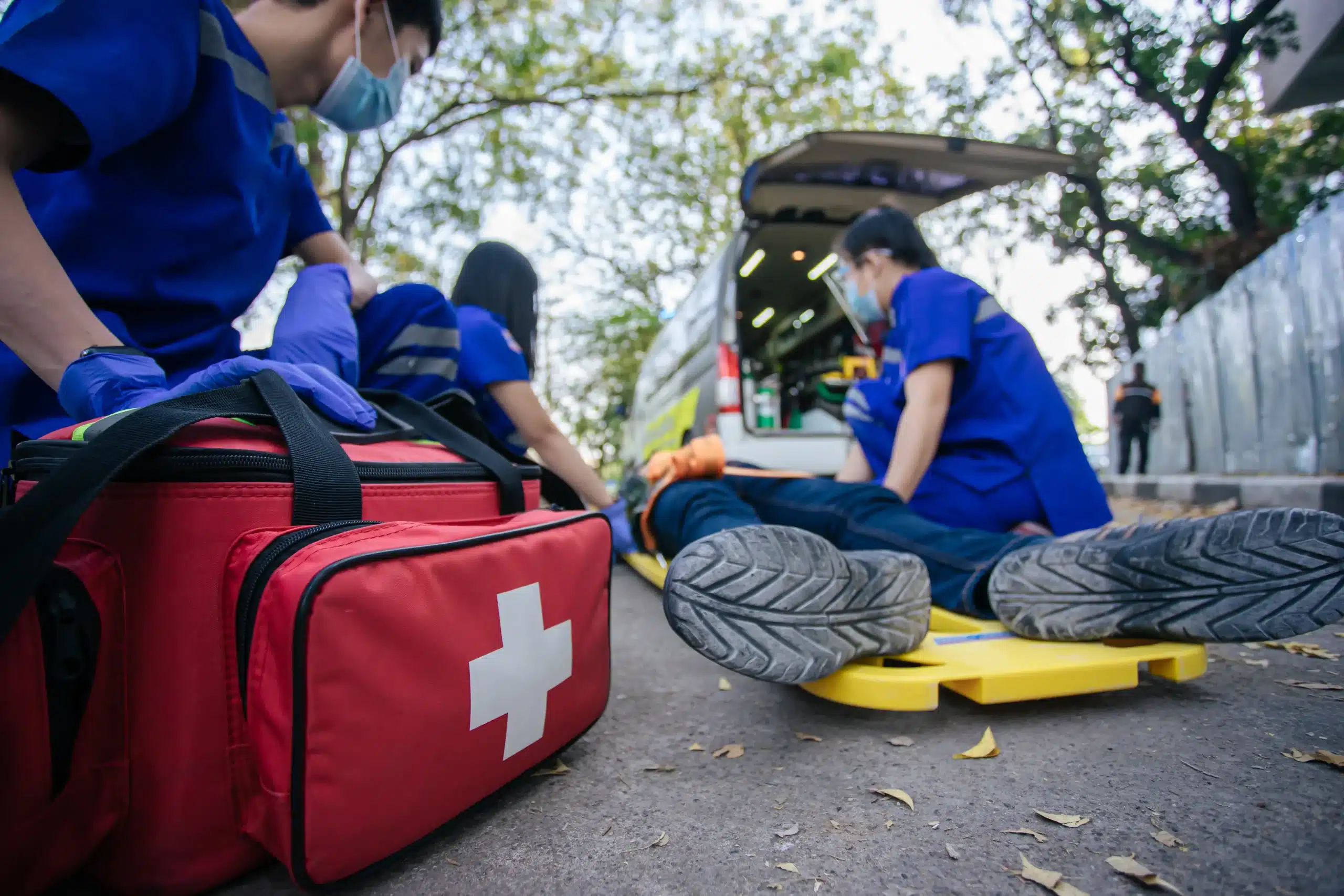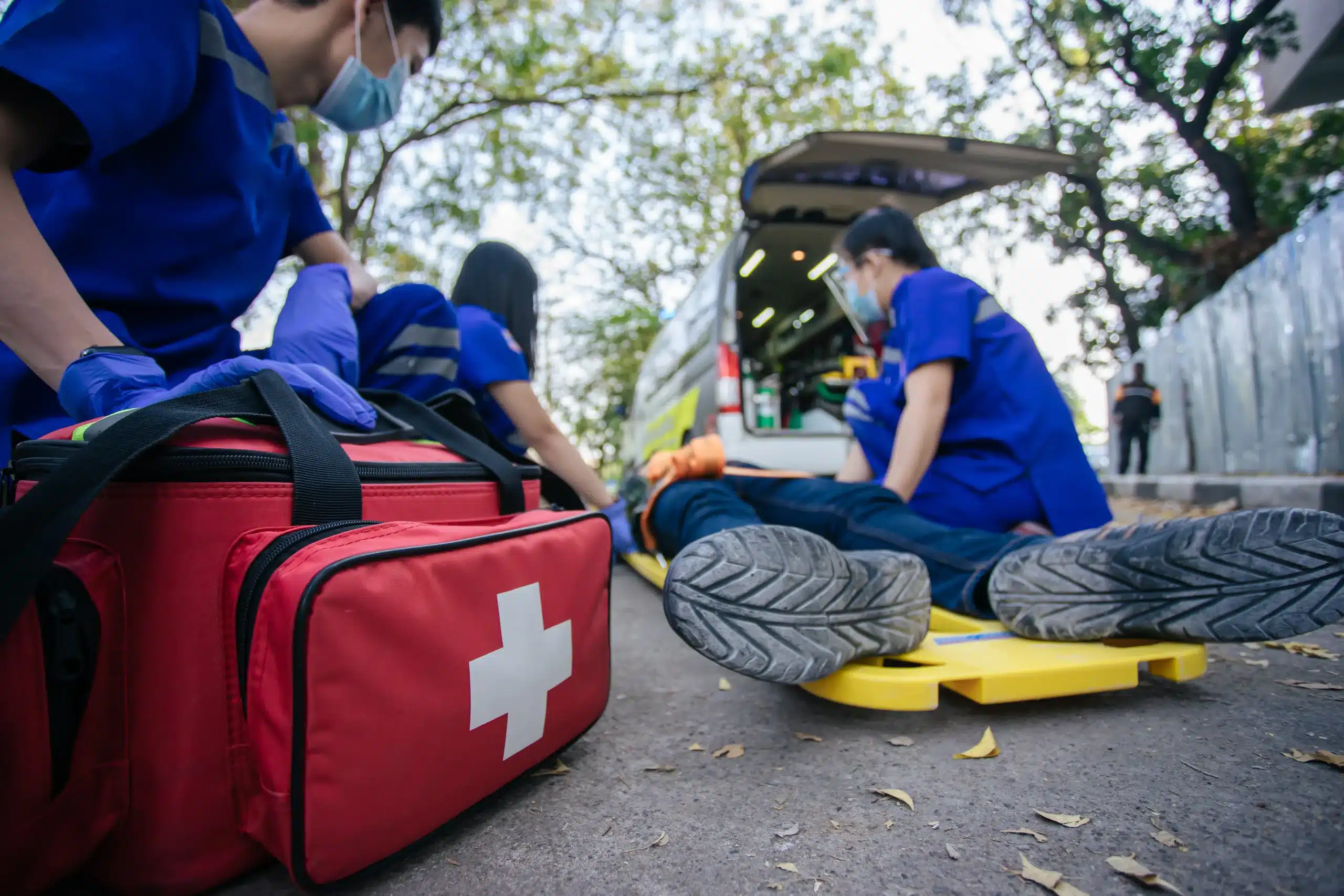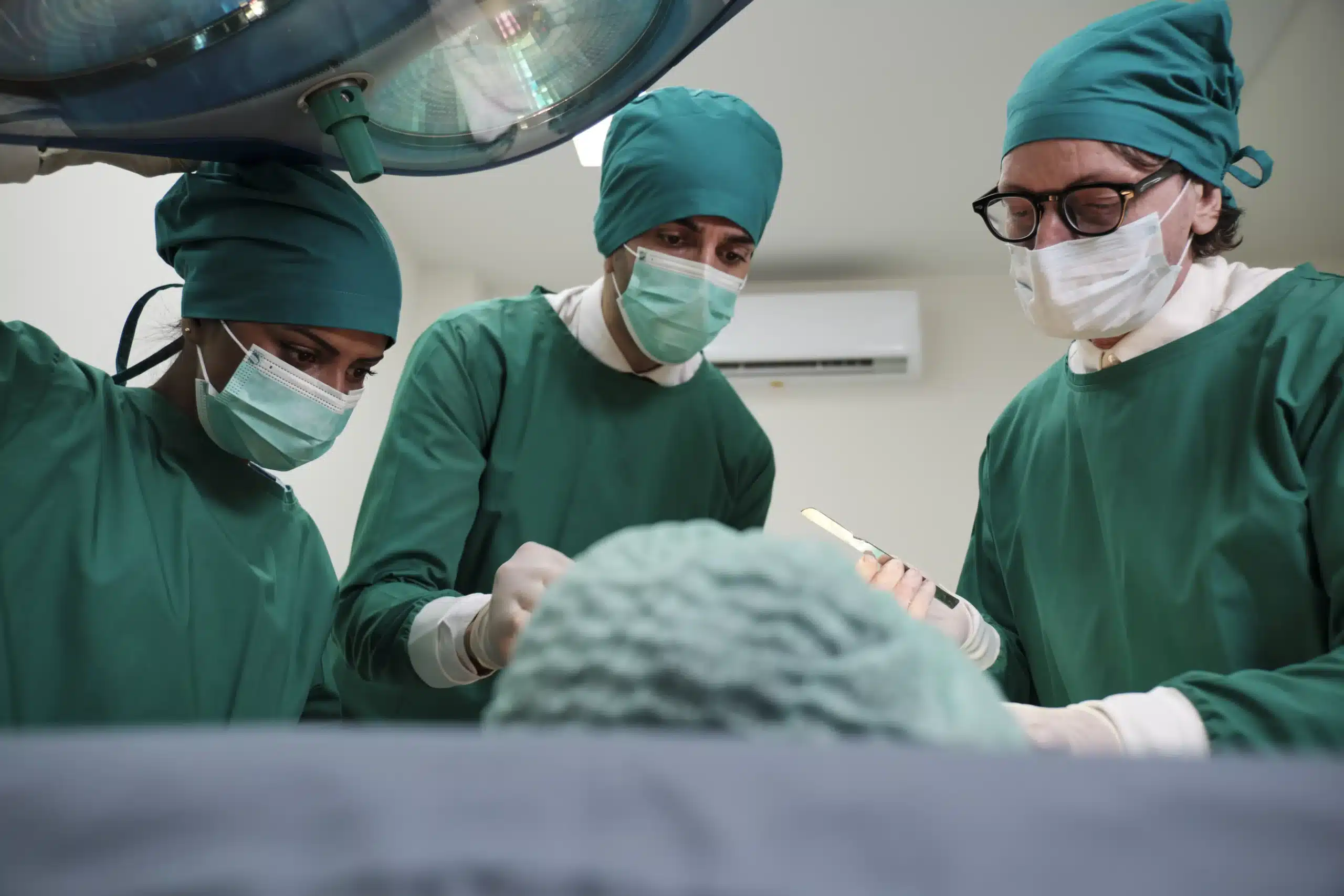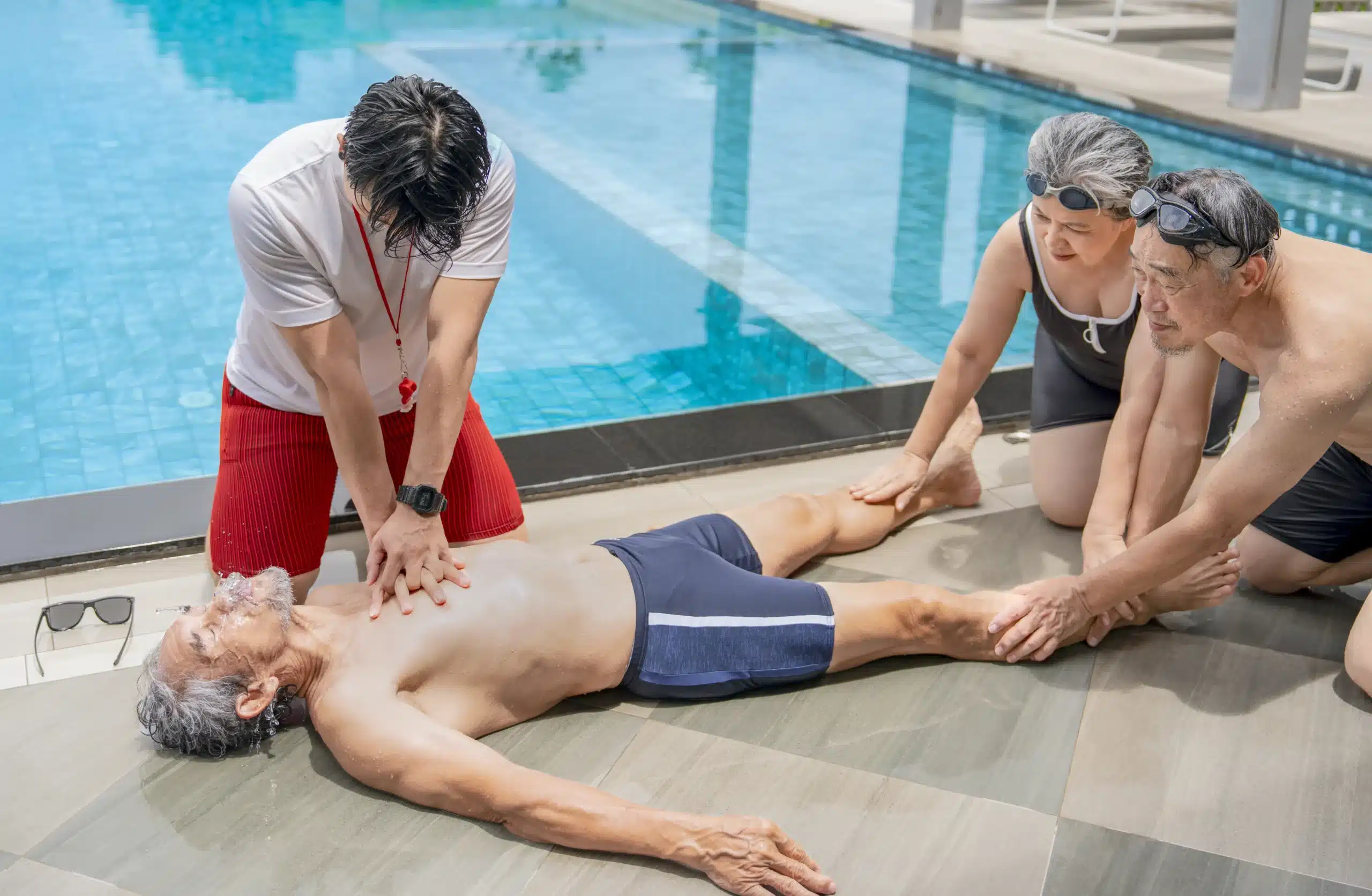Emergencies happen, and knowing how to respond can make all the difference. CPR training in Santa Clara provides you with the skills to assist in life-threatening situations, giving you the confidence to act quickly and effectively. This guide explores the various CPR training options available in Santa Clara, from basic life support to advanced certifications for healthcare professionals. We’ll cover the costs, the importance of instructor qualifications, and how to find the right course for your needs. Whether you’re a concerned parent, a healthcare provider, or simply someone who wants to be prepared, this guide will help you navigate the world of CPR training and empower you to make a difference.
Key Takeaways
- CPR training equips you to respond to emergencies: Learn essential life-saving skills, from basic CPR and AED use to advanced techniques for healthcare professionals. Find a course that matches your individual needs and professional goals.
- Santa Clara offers convenient and affordable CPR courses: Explore various training providers and compare factors like course content, schedule flexibility, and the Low Price Guarantee offered by Santa Clara CPR Classes.
- Maintain your CPR skills for long-term preparedness: Regularly refresh your knowledge and skills through renewal courses and continuing education programs to stay up-to-date with the latest guidelines and best practices.
What is CPR Training?
CPR training gives you the skills to respond to medical emergencies, especially cardiac arrest. You’ll learn chest compressions, rescue breaths, and how to use an AED. These techniques help circulate oxygenated blood when someone’s heart has stopped beating effectively. CPR training covers the physical steps, how to recognize emergencies, and the mental aspects of handling a crisis. The American Heart Association stresses that CPR training is valuable for everyone. It empowers you to act quickly and confidently in life-threatening situations. Effective training often includes realistic practice, building your confidence to perform CPR in real-life emergencies. This training provides you with the knowledge and skills to potentially save lives, making it a critical part of community safety.
CPR Courses in Santa Clara
Santa Clara offers a range of CPR courses to meet diverse needs, from basic life support for the community to advanced certifications for healthcare professionals. Let’s explore the different types of CPR training available in Santa Clara.
BLS Certification
Basic Life Support (BLS) certification provides the foundational skills to respond to life-threatening emergencies. This course covers core techniques like CPR, recognizing and responding to signs of someone having a heart attack or stroke, and using an automated external defibrillator (AED). BLS certification is valuable for healthcare providers, first responders, and anyone who wants to be prepared to help in a crisis.
ACLS Certification
Advanced Cardiovascular Life Support (ACLS) training builds upon the fundamentals of BLS. Designed for healthcare professionals, ACLS focuses on the effective management of cardiovascular emergencies, including heart attacks, strokes, and other life-threatening conditions. This course emphasizes teamwork, communication, and advanced life-saving procedures. ACLS certification is essential for physicians, nurses, paramedics, and other medical personnel working in critical care settings.
PALS Certification
Pediatric Advanced Life Support (PALS) certification equips healthcare providers with the specialized knowledge and skills to respond to emergencies involving infants and children. PALS courses cover pediatric-specific resuscitation techniques, airway management, and treatment protocols. This training is essential for pediatricians, nurses, paramedics, and other medical professionals who care for young patients. It emphasizes the unique physiological differences between children and adults, ensuring appropriate and effective interventions.
First Aid & CPR
Combining First Aid and CPR training provides a comprehensive skill set for responding to various medical emergencies. These courses teach how to manage injuries, control bleeding, treat burns, and provide basic life support until professional medical help arrives. This combined training is beneficial for anyone who wants to be prepared for both minor and major medical incidents, from everyday injuries to life-threatening situations. It empowers individuals to take immediate action and potentially save lives.
Hands-Only CPR & Choking Relief
Learning Hands-Only CPR and choking relief can empower anyone to act quickly and effectively in critical situations. These streamlined courses focus on high-quality chest compressions and techniques to dislodge airway obstructions. This training is ideal for community members, teachers, and anyone interested in learning essential life-saving skills. It provides a simplified approach to CPR, removing the mouth-to-mouth component and focusing on the most critical element: chest compressions.
CPR Training Costs & Value
Understanding CPR training costs and the value they offer is essential when choosing a course. Several factors influence pricing, and exploring these can help you make an informed decision.
Factors Affecting Price
When considering CPR training in Santa Clara, several factors influence the overall cost. The type of course plays a significant role. A basic CPR course will typically be less expensive than a more specialized course like ACLS (Advanced Cardiovascular Life Support) or PALS (Pediatric Advanced Life Support). The training duration also matters; longer courses often have higher fees. Finally, the certification provided upon completion is key. Courses offering certification from recognized organizations, like the American Heart Association, may have different pricing due to the quality of instruction and materials. For a breakdown of our course offerings and pricing, visit our website.
Basic vs. Specialized Course Costs
Basic CPR courses cover essential life-saving skills for adults, children, and infants and usually come at a lower price point. These courses focus on core techniques like chest compressions, rescue breaths, and recognizing the signs of cardiac arrest. Specialized courses, such as those for healthcare providers, build upon this foundation and explore more advanced techniques, including airway management and using automated external defibrillators (AEDs). This added complexity and specialized knowledge often result in a higher course cost. You can explore our range of CPR courses on our website.
Low Price Guarantee
At Santa Clara CPR Classes, we believe that life-saving skills should be accessible to everyone. We’re committed to providing high-quality CPR training at competitive prices with our Low Price Guarantee. We encourage you to compare our prices with other providers. Our commitment to affordability makes learning CPR more accessible, empowering more people to handle emergencies. Contact us to learn more about our CPR training options.
Instructor Qualifications & Expertise
Choosing the right CPR class is a big decision, and instructor qualifications play a vital role. You want to learn from someone knowledgeable, experienced, and up-to-date on the latest guidelines. Here’s what to look for in a CPR instructor in Santa Clara:
AHA Certifications
Many highly qualified instructors in Santa Clara hold certifications from the American Heart Association (AHA). The AHA is a respected organization that sets the standards for CPR and first aid training. AHA-certified instructors have demonstrated a deep understanding of these lifesaving techniques. This ensures you receive training based on the most current and effective guidelines. Look for instructors certified in the specific disciplines you’re interested in, such as Basic Life Support (BLS), Advanced Cardiovascular Life Support (ACLS), or Pediatric Advanced Life Support (PALS). Santa Clara CPR Classes offers a range of AHA-certified courses to meet your specific needs.
Emergency Response Experience
While certifications are essential, real-world experience adds another layer of valuable insight. Instructors with backgrounds in emergency medical services (EMS), or similar fields, often provide practical knowledge gleaned from real-life emergencies. This experience can make the training more engaging and relevant, giving you a better understanding of how to apply your skills under pressure. Safety Training Seminars is one example of an organization that often highlights the practical experience of their instructors.
Ongoing Professional Development
The medical field is constantly evolving, so it’s crucial that CPR instructors stay current with the latest advancements. Look for instructors committed to ongoing professional development. The AHA’s Resuscitation Quality Improvement (RQI) program is one example of a program that helps healthcare professionals maintain and improve their skills. You can explore more about the RQI program offered by Santa Clara CPR classes. Instructors who participate in programs like RQI demonstrate a dedication to providing the highest quality training. This commitment benefits you directly by ensuring you learn the most effective and up-to-date techniques.
Find the Right CPR Training
Finding the right CPR training program is crucial for effective learning and preparedness. Whether you’re a healthcare provider, a concerned citizen, or an employer looking to train your team, several reputable options are available in Santa Clara. Let’s explore some key providers and resources.
Santa Clara CPR Classes
Santa Clara CPR Classes offers a comprehensive range of American Heart Association (AHA) courses, including CPR, BLS, ACLS, and PALS. They cater to everyone from individuals seeking basic life support skills to healthcare professionals needing advanced certifications. Their flexible scheduling and convenient location make it easy to fit training into your busy life. You can find more information about their BLS certification on their website.
AHA Training Centers
The American Heart Association itself is a leading authority on CPR training. They have a network of authorized training centers throughout Santa Clara and the surrounding areas. These centers offer standardized, high-quality instruction based on the latest AHA guidelines. Hands-on practice and interactive learning are central to their approach, ensuring you gain practical skills and confidence in emergency situations. Santa Clara CPR Classes offers a variety of AHA-certified courses.
Red Cross Training Centers
The American Red Cross is another well-respected provider of CPR and first aid training. They offer various courses covering adult, child, and infant CPR, as well as AED use and first aid techniques. You can find Red Cross training centers near Santa Clara through their website.
Local Hospitals & Medical Centers
Many local hospitals and medical centers in Santa Clara County offer CPR training programs. These programs often cater to both healthcare professionals seeking recertification and community members wanting to learn essential lifesaving skills. Check with hospitals like Kaiser Permanente or Stanford Health Care to explore their offerings. Resources like CPR Training Center can also help you find local CPR classes.
Santa Clara County Fire Department
The Santa Clara County Fire Department provides CPR and AED training to the public. They offer various courses, including Hands-Only CPR, which empowers individuals to provide immediate assistance in cardiac arrest situations. Check their website or contact them directly for information on course schedules and registration.
Register for a CPR Course
Ready to take the next step and learn CPR? Registering for a course is easier than you think. We’ve broken down the process to help you get started.
Online Registration
Many organizations offer the convenience of online registration. For example, the Santa Clara County Fire Department manages its CPR course registrations through Eventbrite. Check with your chosen training center to see if they offer online registration, which often allows you to browse available dates, select a course, and pay securely, all in one place.
Group & Corporate Training
Need to train your entire team? Group and corporate training options are available. Safety Training Seminars offers on-site training, bringing the instruction directly to your workplace. This can be a cost-effective and convenient way to ensure everyone receives the same high-quality training. Contact the training center directly to discuss your specific needs and arrange a customized training session.
Course Duration & Structure
CPR courses vary in length and content depending on the certification level. For instance, the American Heart Association’s Heartsaver CPR/AED Blended Learning course combines online learning with in-person skills practice and typically leads to a two-year certification. This course covers essential skills like adult, child, and infant CPR, AED use, and choking relief. Be sure to review the course description to understand the time commitment and topics covered. You can find more information about our course structure on our website.
Hands-On Practice
Effective CPR training involves more than just textbook learning. Look for courses that emphasize hands-on practice. Simulations play a crucial role in developing muscle memory and building confidence. Practicing on mannequins allows you to apply the techniques you learn in a safe environment, preparing you to respond effectively in a real emergency. Ask about the hands-on components when choosing your course.
Benefits of CPR Training
Learning CPR offers significant advantages, from personal preparedness to career advancement. Let’s explore some key benefits of becoming CPR certified.
Emergency Preparedness
CPR training equips you with the skills to respond effectively during emergencies. Imagine witnessing a sudden cardiac arrest—a terrifying situation. With CPR training, you transform from a bystander into a potential lifesaver, gaining the confidence to assess the situation, perform chest compressions, and provide rescue breaths. This increases the chances of survival until professional help arrives. This preparedness can make all the difference in those critical moments. Check out our BLS CPR classes to get started.
Community Safety
CPR and First Aid certification contribute directly to a safer community. When more people are trained, the community is better prepared for emergencies, fostering a culture of preparedness and responsiveness. By investing in these skills, you protect yourself, your loved ones, and contribute to the well-being of your neighbors and fellow community members in Santa Clara.
Professional Development
For healthcare professionals, CPR certification is essential for career growth. The American Heart Association RQI program offers a streamlined path to BLS, ACLS, and PALS certifications. These credentials demonstrate your commitment to high-quality patient care and staying current with the latest resuscitation techniques. RQI certification is a valuable asset, enhancing your professional skills and opening doors to new opportunities. It also ensures you’re prepared to handle critical situations confidently and effectively within your healthcare setting.
Maintain Your CPR Certification
Once you’ve earned your CPR certification, staying current with the latest guidelines and techniques is crucial. Knowing renewal requirements and exploring different skill maintenance options will ensure you’re always prepared to respond effectively in an emergency.
Renewal Requirements
The American Heart Association (AHA) requires regular renewal of Basic Life Support (BLS) CPR certifications to ensure individuals possess the most up-to-date skills and knowledge. This is essential for anyone who wants to respond confidently and effectively during emergencies. Staying certified demonstrates your commitment to providing high-quality care and being a valuable resource in critical situations. Check the AHA’s website for the most current renewal guidelines for your specific certification.
Continuing Education
Even if your certification isn’t due for renewal yet, participating in continuing education courses can be incredibly beneficial. Taking refresher CPR and First-aid certification classes not only reinforces your existing skills but also introduces you to any updated procedures or best practices. This ongoing education helps you stay sharp and confident in your abilities. It’s also a great way to connect with other professionals and share experiences.
RQI Skill Maintenance
For healthcare professionals, maintaining CPR skills is often a job requirement. The AHA’s Resuscitation Quality Improvement (RQI) program offers a convenient and efficient way to stay on top of your training. RQI provides the necessary training and allows you to receive official AHA BLS, ACLS, and PALS certification cards, ensuring you’re always prepared to deliver the highest standard of care. This program is designed to fit into busy schedules, making skill maintenance more manageable.
Overcome CPR Training Challenges
Let’s face it: learning new skills can be daunting, and adding another task to your schedule can feel overwhelming. Finding the right CPR training and making it work for you shouldn’t add to the stress. Here’s how to overcome common challenges:
Find the Right Course
First things first, you need to identify the right CPR class for your needs. Are you a healthcare provider needing to renew your ACLS certification? Or are you a parent wanting to learn basic CPR and choking relief? Santa Clara CPR Classes offers a range of American Heart Association courses, from basic life support (BLS) for healthcare providers to CPR and First Aid for the community. Knowing what you need helps narrow your search and ensures you receive the appropriate training.
Manage Your Schedule
Between work, family, and other commitments, finding time for a CPR class can be tricky. Look for courses offered on various days and times. Santa Clara CPR Classes offers daily classes, making it easier to fit training into your busy schedule. Also, consider the course format. Some courses may be blended learning, combining online modules with in-person skills sessions, offering more flexibility.
Address Cost Concerns
Cost is often a barrier to pursuing training. However, think of CPR training as an investment in yourself and your community. Compare pricing between different providers and look for a low price guarantee. Santa Clara CPR Classes offers competitive rates and a low price guarantee, ensuring you get quality training without breaking the bank. Remember, knowing CPR can be priceless in a life-or-death situation.
Get Started with CPR Training
Ready to learn CPR? Finding the right course in Santa Clara is straightforward, with options for all experience levels and schedules. Whether you’re a healthcare professional maintaining certification or a community member wanting to learn essential life-saving skills, there’s a class for you.
One of the easiest ways to begin is with Santa Clara CPR Classes. They offer a range of American Heart Association (AHA) certified courses, including BLS, ACLS, PALS, and First Aid. Their convenient schedules and dedication to customer service make learning CPR a smooth process.
The Santa Clara County Fire Department also provides CPR and AED training. These courses are excellent for both initial training and refreshing your skills. If you’re looking for a program integrated with an academic setting, Mission College offers CPR certification classes covering infant, child, and adult CPR.
Learning CPR not only equips you to handle emergencies but also strengthens the safety net within your community. By becoming trained, you contribute to a more prepared and responsive Santa Clara. For more information on CPR training and its benefits, explore the resources available at Santa Clara CPR Classes.
Related Articles
- Why CPR is Important in Healthcare – Santa Clara CPR Classes
- Debunking Common CPR Myths
- Why CPR and First-Aid Training is Vital for Workplace Safety
- CPR, BLS, ACLS, PALS, & First-aid Classes in Santa Clara, CA
- CPR & First-aid Classes in Santa Clara, CA – Santa Clara CPR Classes
Frequently Asked Questions
What’s the difference between BLS and ACLS certification?
BLS certification provides the fundamental skills needed to respond to life-threatening emergencies, focusing on CPR, AED use, and recognizing heart attacks and strokes. It’s suitable for anyone, including healthcare providers and the general public. ACLS certification builds upon BLS, delving into more advanced techniques for managing cardiovascular emergencies. It’s designed specifically for healthcare professionals working in critical care settings.
How much does CPR training typically cost in Santa Clara?
The cost of CPR training varies depending on the course type, duration, and certifying organization. Basic CPR courses are generally more affordable than specialized certifications like ACLS or PALS. Check with specific training providers like Santa Clara CPR Classes for their pricing and any available discounts. They often have a low-price guarantee, ensuring competitive rates.
How do I find a reputable CPR instructor in my area?
Look for instructors certified by recognized organizations like the American Heart Association (AHA). Check if they have real-world emergency response experience and a commitment to ongoing professional development, like participating in the AHA’s RQI program. Reading reviews and testimonials can also give you insights into the instructor’s teaching style and effectiveness.
What if I have a busy schedule and can’t attend a traditional CPR class?
Many CPR training centers offer flexible scheduling options, including evening and weekend classes. Blended learning courses, combining online modules with in-person skills sessions, are also increasingly popular. This format allows you to complete some coursework at your own pace, making it easier to fit training into a busy schedule.
How often do I need to renew my CPR certification?
CPR certifications, especially BLS, typically need renewal every two years. Check with the certifying organization, such as the AHA, for their specific renewal requirements. Staying current with your certification ensures you’re up-to-date on the latest guidelines and techniques, allowing you to respond effectively in emergencies.
This article was written for free by MEGA SEO.
